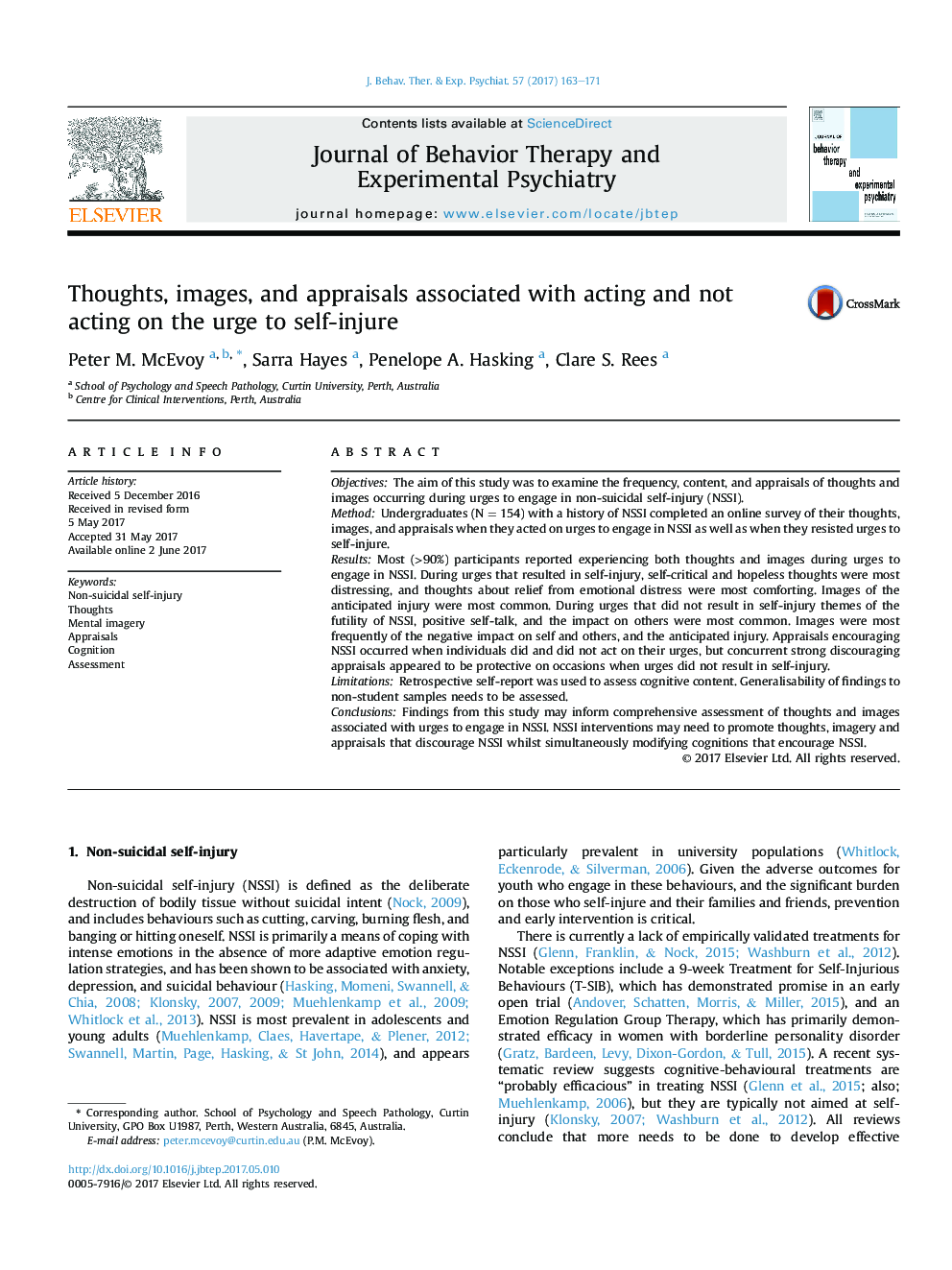| Article ID | Journal | Published Year | Pages | File Type |
|---|---|---|---|---|
| 5039018 | Journal of Behavior Therapy and Experimental Psychiatry | 2017 | 9 Pages |
â¢Assessed thoughts, imagery, and appraisals during non-suicidal self-injury (NSSI).â¢Compared cognitions when NSSI urges were and were not acted upon.â¢Thoughts, images, and appraisals that were encouraging and discouraging of NSSI were identified.â¢Findings may help to guide individualised assessment, case formulation, and treatment planning.
ObjectivesThe aim of this study was to examine the frequency, content, and appraisals of thoughts and images occurring during urges to engage in non-suicidal self-injury (NSSI).MethodUndergraduates (NÂ =Â 154) with a history of NSSI completed an online survey of their thoughts, images, and appraisals when they acted on urges to engage in NSSI as well as when they resisted urges to self-injure.ResultsMost (>90%) participants reported experiencing both thoughts and images during urges to engage in NSSI. During urges that resulted in self-injury, self-critical and hopeless thoughts were most distressing, and thoughts about relief from emotional distress were most comforting. Images of the anticipated injury were most common. During urges that did not result in self-injury themes of the futility of NSSI, positive self-talk, and the impact on others were most common. Images were most frequently of the negative impact on self and others, and the anticipated injury. Appraisals encouraging NSSI occurred when individuals did and did not act on their urges, but concurrent strong discouraging appraisals appeared to be protective on occasions when urges did not result in self-injury.LimitationsRetrospective self-report was used to assess cognitive content. Generalisability of findings to non-student samples needs to be assessed.ConclusionsFindings from this study may inform comprehensive assessment of thoughts and images associated with urges to engage in NSSI. NSSI interventions may need to promote thoughts, imagery and appraisals that discourage NSSI whilst simultaneously modifying cognitions that encourage NSSI.
